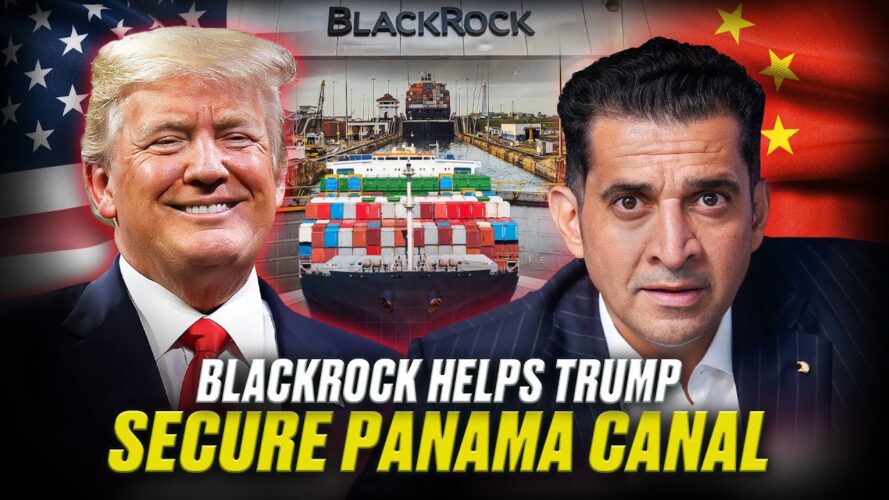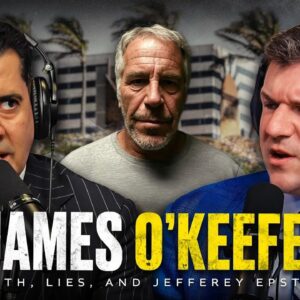In a stunning geopolitical and economic shift, US-based investment giant BlackRock has acquired two of the most critical ports flanking the Panama Canal from Hong Kong-based CK Hutchison for $22.8 billion—an unprecedented move sparking fury in Beijing and raising questions about global power dynamics.
In this video, Patrick Bet-David breaks down the role BlackRock is going to play in global shipping…as well as the secret reason the deal might have gone through.
Subscribe to Valuetainment for more deep dives, explainers, and motivational videos from PBD!
BlackRock vs. China: A Strategic Choice
The video opens by posing a provocative question: if you had to choose, would you rather the Panama Canal be under the control of China or BlackRock? While neither is an ideal scenario for some, many in the West view BlackRock’s ownership as the lesser of two evils.
The Deal That Shocked the World
The acquisition came unexpectedly, announced almost simultaneously as a U.S. president was giving a speech about reclaiming national security interests. BlackRock now owns two of the most strategically vital ports—Cristóbal on the Atlantic side and Balboa on the Pacific side—making it a gatekeeper for virtually all shipping traffic through the canal.
But this deal wasn’t just about Panama. BlackRock acquired 43 ports in 23 countries, including key locations in Mexico, the Netherlands, Egypt, Australia, and Pakistan. Despite some claims that BlackRock overpaid (Morningstar estimated the assets’ worth at just $10 billion), others argue it was a bargain given comparable port valuations.
China’s Rage and Strategic Loss
China, particularly President Xi Jinping, reacted with outrage. CK Hutchison, a company with a long-standing presence in Panama since 1997, had deep strategic ties to China. Under Chinese national security law, the government could exert control over Hong Kong-based companies during conflict—effectively turning CK Hutchison into a geopolitical pawn.
By selling to BlackRock, China lost a powerful lever over global trade. The ports are not just infrastructure—they’re strategic choke points. With 70% of Panama Canal traffic linked to U.S. trade, and China as the second-largest user, control over these ports has massive implications.
Politics Behind the Deal
The deal came shortly after BlackRock exited the Net Zero climate initiative, raising suspicions about backroom deals. Reports suggest Larry Fink, CEO of BlackRock, had direct communication with high-level U.S. officials including Donald Trump, Marco Rubio, and others, to secure approval. The timing and coordination hint at potential political orchestration to counter Chinese influence.
Historical Tensions and a Betrayal
The deal also exposes strained relations between CK Hutchison’s founder, Li Ka-shing, and President Xi. Li had previously angered Beijing by selling off Chinese real estate before the market crash and supporting pro-democracy protests in Hong Kong. Many speculate that this sale was both a business decision and a political statement—a final act of defiance.
What’s Next? U.S. Military and Future Risks
Currently, the U.S. has about 200 special forces personnel in Panama. Discussions are underway to increase military presence, ensure shipping security, and possibly reestablish U.S. Army jungle training schools. There’s growing concern that China might retaliate or attempt to block the deal, much like it did in 2021 when it halted Blackstone’s attempt to buy a Chinese real estate firm.
But there’s a long-term concern: What happens if BlackRock, a private company, changes hands or leadership? The video warns that future U.S. administrations may not maintain the same control or oversight, potentially opening doors for geopolitical manipulation.
Conclusion: A Strategic Win—For Now
BlackRock’s acquisition is seen as a short-term win for U.S. strategic interests, preventing China from having unchecked influence over a vital global trade route. However, the long-term risks of privatizing such critical infrastructure remain, especially in the hands of a powerful and globally connected firm like BlackRock.


















Add comment